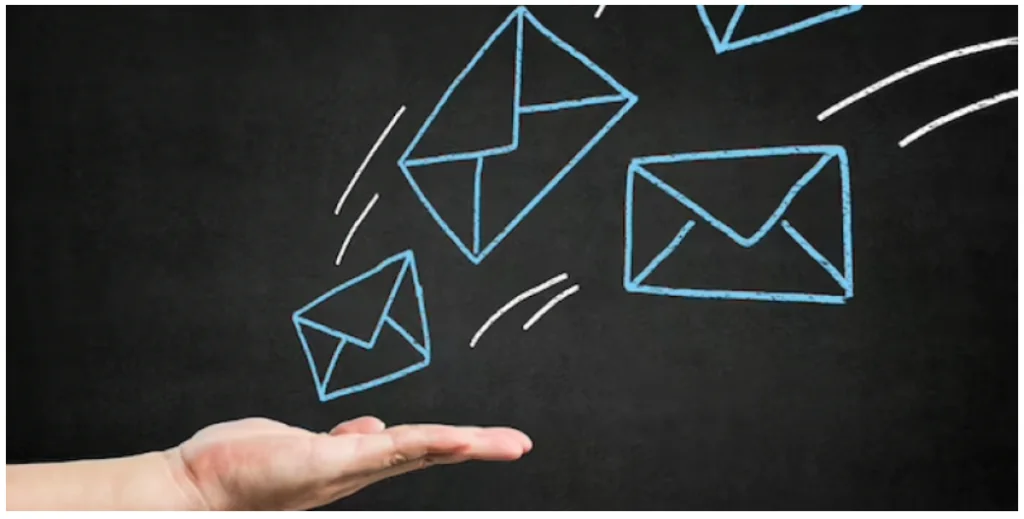AI in Email Marketing: 7 Best Practices

AI has been part of pop culture since the 1960s, with its first appearance in A Space Odyssey as HAL 9000. From there, we saw its peak in the 1980s with the cult classic movie, The Terminator, and we still resonate with Arnold’s “I will be back” dialogue. Then came the machines in The Matrix in the 1990s, and in the 2000s, it was Jarvis from The Iron Man.
The iconic sentient beings were all part of figments of imagination, but in 2023, chatGPT started trending for its intelligent answers to quirky wit. So, many platforms wanted to ride the trend wagon and started to explore the idea of integrating AI platforms into their products.
Email marketing platforms are not an exception, AI in email marketing is becoming the norm.
From generating text for emails and image generation to email subject line generation, AI email marketing is slowly progressing, and it is believed to become smarter and smarter in the years to come.
By the end of 2030, we might be lucky enough to see AI curating, segmenting, and sending email campaigns allowing businesses to generate ROI through intelligent automation—freeing up sales representatives to focus on creating exceptional customer experiences!
What is AI Email Marketing?

AI email marketing is the use of artificial intelligence to enhance and automate various aspects of your email campaigns. AI-powered tools can help you analyze data, segment your audience, personalize content, optimize send times, generate AI images and content, and much more.
To give you some examples, here are a few of the most popular AI email marketing tools available today:
AI Email Generator: Automates the creation of personalized email content, enhancing engagement with each subscriber.
AI Sales Assistant: Analyzes customer interactions to provide sales teams with precise timing and messaging strategies.
Dynamic Personalization Engine: Tailors email content in real-time based on user behavior and preferences.
Campaign Automation Platform: Streamlines campaign management tasks such as scheduling, A/B testing, and reporting.
One of the key benefits of using AI in email marketing is that it enables marketers to deliver highly targeted and personalized messages to their subscribers. By analyzing customer behavior and preferences, AI algorithms can recommend products or services most relevant to each subscriber.
Another advantage of using AI in email marketing is that it allows you to optimize your campaigns based on real-time data. For example, if you notice a decline in open rates for a particular campaign, AI-powered email writer tools can suggest changes such as subject line tweaks or different send times.
Moreover, AI can also improve your overall campaign performance by automating repetitive tasks such as list maintenance and A/B testing. This not only saves time but also ensures consistency across all campaigns.
In summary, incorporating artificial intelligence into your email marketing strategy can help you achieve better results by enhancing personalization efforts while streamlining tasks through automation.
Why You Should Use AI in Email Marketing

Artificial Intelligence (AI) has transformed how marketers conduct email campaigns. With AI, businesses can tailor email marketing strategies that are more personalized and relevant to their target audience. Here’s why you should use AI in your email marketing.
Firstly, AI helps companies analyze customer data to create targeted messages that resonate with customers on a personal level. This allows businesses to deliver highly customized content, which results in higher engagement rates and ultimately leads to better conversions.
Secondly, AI offers insights into customer behavior patterns and preferences based on previous interactions or purchases. By analyzing this data, marketers can understand what resonates with their audience and create more effective campaigns that generate higher engagement rates.
Thirdly, incorporating AI into your email marketing strategy enables you to automate certain processes, such as sending emails at specific times or conducting A/B testing for different subject lines and designs.
Finally, with the trend of generative AI rapidly gaining momentum, businesses can analyze user behavior and preferences. This allows email marketers to deliver hyper-relevant messages, delivering the right content to the right people at the right time.
In summary, the benefits of using AI in email marketing are clear: creating personalized messaging; generating deeper insights about customer behavior; streamlining processes through automation.
7 Best Practices for Using AI Email Marketing

Using AI in email marketing can significantly enhance your campaigns’ effectiveness and improve customer engagement. Here are seven best practices for leveraging AI in email marketing:
Personalization:
Utilize AI algorithms to analyze customer data and preferences, enabling you to create highly personalized email content. Use email marketing tools with AI to tailor subject lines, body text, and product recommendations based on individual behavior and demographics, boosting open rates and conversions.
Predictive Analytics:
Leverage AI’s predictive capabilities to anticipate customer behavior and optimize email timing. AI algorithms can analyze historical data to determine the best time to send emails to maximize open and click-through rates, improving overall campaign performance.
Segmentation and Targeting:
Implement AI-powered segmentation techniques to divide your audience into smaller, targeted groups. AI can identify specific customer segments and deliver tailored email content that resonates with each group by analyzing various data points like purchase history, browsing behavior, and demographics.
Automated Email Campaigns:
Use AI to automate email campaigns and workflows. AI algorithms can track customer interactions, such as email opens, clicks, and conversions, triggering automated responses or personalized follow-up emails based on predefined conditions. To maximize impact, these campaigns should be paired with email deliverability tools that monitor sender reputation, inbox placement, and spam triggers. This ensures timely, relevant communication actually reaches your audience instead of getting lost in junk folders.
Content Optimization:
AI is transforming traditional approaches in content writing, ushering in a new era of efficiency and creativity. AI-powered email marketing tools can assist in optimizing email content by analyzing large volumes of data and identifying patterns. These tools can suggest improvements in subject lines and call-to-action buttons, generate images for email, and email layouts, ensuring that your emails are engaging and drive desired actions.
Additionally, you can leverage AI writing tools and enhance the content with an AI detector and humanization features to craft a more natural, human-like email.
A/B Testing:
Employ AI algorithms to conduct A/B tests on different elements of your email campaigns. From subject lines to email designs, AI can help you quickly identify the most effective variations, leading to improved open rates, click-through rates, and conversions.
Spam Filtering and Deliverability:
AI can help enhance email deliverability by filtering out spammy content and identifying potential deliverability issues. Utilize AI-powered spam filters and email validation tools to ensure your emails land in your subscribers’ inboxes and avoid being flagged as spam.
To Wrap Up
Remember, while AI can greatly optimize your email marketing efforts, it’s crucial to continually monitor and analyze the results, make data-driven decisions, and refine your strategies accordingly. Never think that AI will do everything for you, humanizing your campaigns to touch grass is just as crucial.
Author Bio:
Ajitha Victor is a Content Marketer at the TargetBay Marketing team. She loves creating content and inbound marketing. She loves reading and creative writing whenever she gets time and she never misses a chance to have a good conversation with someone over a cup of chai!
